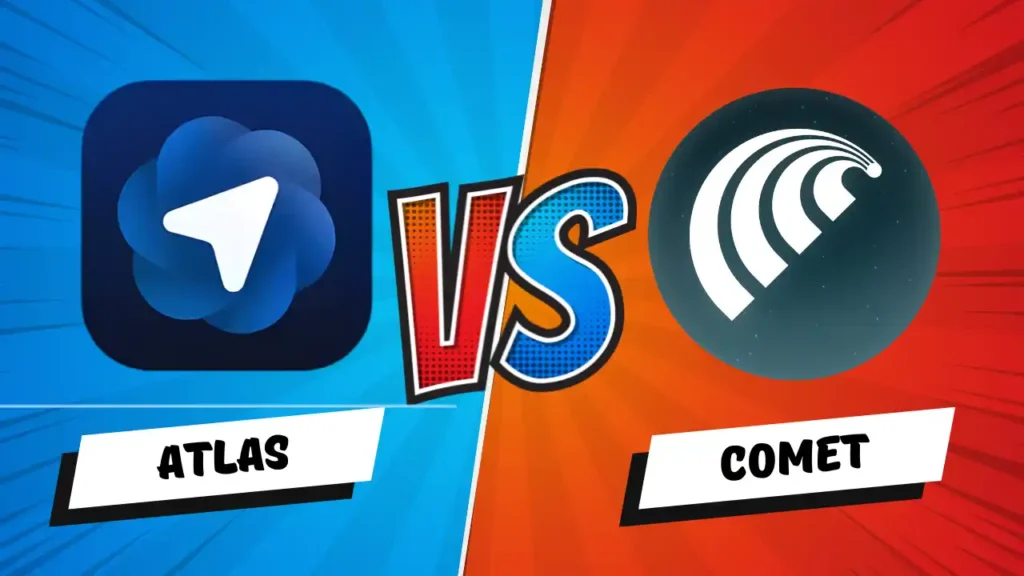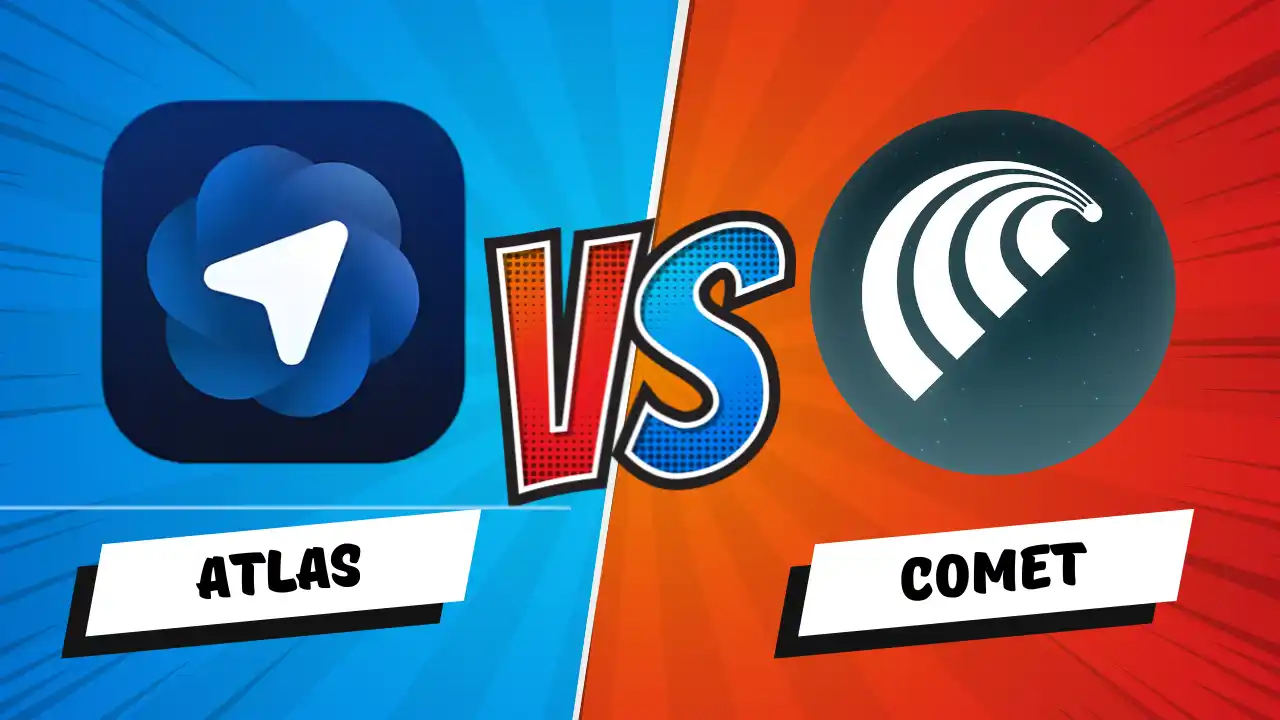
The browser landscape is undergoing a major shift. Traditional web browsers are now being challenged by AI-first browsers that embed artificial intelligence not just as a feature, but as a core part of how you browse, search and act. For digital marketers and agencies like Picasso Multimedia, this evolution demands a fresh look at content strategy, user journeys and brand visibility.
Two frontrunners in this race are:
- Comet, from Perplexity AI.
- ChatGPT Atlas, from OpenAI (formerly “Aura” in rumours).
Let’s compare what each offers, and what it means for digital marketing.
1. Origins & Positioning
Comet Browser (Perplexity AI)
Launched in July 2025, built on Chromium, Comet is described as an AI-powered browser where the Perplexity search engine is the default, and a built-in assistant can summarise content, perform tasks, and replace parts of the traditional browsing experience.
ChatGPT Atlas (OpenAI)
Announced October 2025 (for macOS initially), the browser from OpenAI pushes the power of ChatGPT and its agents into the browsing interface — with features like “agent mode” and built-in sidebar to ask questions or perform tasks.
From a marketing perspective, the positioning is different: Perplexity appeals to power-users and productivity workflows, while OpenAI’s browser has the brand weight and wider consumer push.
2. Key Features & UX
Comet
- Built on Chromium, supports Chrome extensions and bookmark import.
- Default search engine is Perplexity, with AI-generated summaries and task automation (e.g., booking, comparing).
- Initially subscription-heavy ($200/month) though later freely available.
- Focus on “browser as assistant” rather than just navigating pages.
ChatGPT Atlas
- Integrates ChatGPT’s conversational interface directly into browsing (sidebar, summarisation, agent mode).
- Built to shift how users interact with the web: fewer clicks, more conversation.
- Stronger brand backing (OpenAI) but still rolling out, so mass access is limited initially.
3. Implications for Digital Marketing
At Picasso Multimedia, we believe these AI-browsers will affect how users discover, interact and convert — thus altering marketing strategies.
Search & Content Visibility
With AI-browsers, the user may ask a question and receive a direct answer or summary rather than clicking through multiple pages. Brands must optimise for conversational, summary-friendly content, structured data, and high-authority signals.
User Journey & Engagement
When browsers can perform tasks (e.g., make bookings, compare products, summarise results), the funnel shortens. Agencies must redesign journeys to account for assistant-led interactions, not just website visits.
Measurement & Attribution
Traditional metrics (click-through, page views) may become less relevant in AI-driven browsing. Marketing teams must focus on engagement metrics, task completion, brand mentions inside assistant interactions. Picasso Multimedia is already advising clients to evolve their analytics approach accordingly.
Brand Authority & Trust
In an environment where AI assistants decide which content to surface or summarise, authority becomes critical. Brands that build trust, accuracy and consistency will be favoured by AI browsers and by users.
4. Strengths & Weaknesses – Side by Side
| Feature | Comet (Perplexity) | ChatGPT Atlas (OpenAI) |
|---|---|---|
| Access / Availability | Early high-price access, later free rollout. | Initial release for macOS, wider rollout pending. |
| Assistant Capabilities | Advanced task automation (bookings, workflows). | Integration with ChatGPT agent and browser interface. |
| Search Engine Default | Perplexity built-in search. | ChatGPT + OpenAI ecosystem (details evolving). |
| Marketing Advantage | Focus on productivity and power-users, early adopters. | Strong brand name, potential mass adoption rapidly. |
| Risks / Challenges | Subscription model, security concerns (see audits). | Roll-out delays, achieving consumer scale, monetisation. |
5. What Marketing Teams Should Do Now
To stay ahead, digital marketing teams (and agencies like Picasso Multimedia) should consider the following actions:
- Audit your content for assistant-friendly features: structured headers, FAQ schema, quick summaries.
- Experiment with AI-browser behaviour: test how your content appears through AI sidebar summaries or direct-answer formats.
- Embrace new metrics: track how many tasks, assistants interactions, or brand mentions happen inside AI browsers.
- Build authority now: invest in niche authority, E-A-T (expertise, authoritativeness, trustworthiness), because AI browsers will likely privilege trusted brands.
- Prepare for blending browser & brand: think how your brand might integrate via extensions, assistant prompts or browser widgets.
Conclusion
The arrival of AI-powered browsers like Perplexity’s Comet and OpenAI’s ChatGPT Atlas signals a major paradigm shift in how users engage online. For agencies like Picasso Multimedia, the key takeaway is clear: browsing is becoming conversational, assistive and agentic. Brands that adapt their content, UX and measurement to this new reality will gain a competitive edge.
If you’re ready to future-proof your digital marketing — optimise for AI-browser behaviours, build authority in the AI era, and reshape your user journeys — now is the time. Because in the browser wars of tomorrow, it’s not just about clicks, it’s about conversations.


